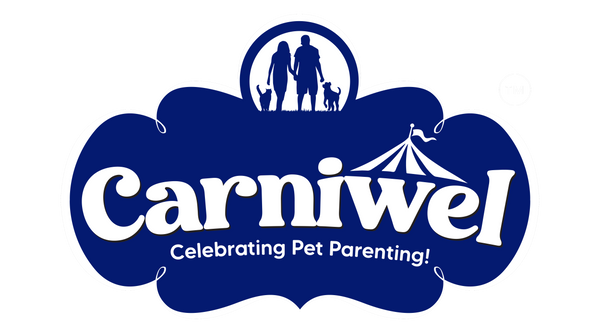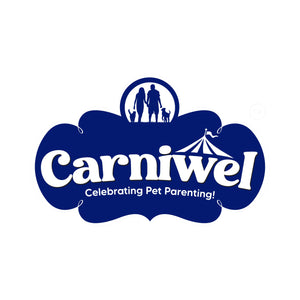As a pet parent, you want to ensure that your furry companion gets the best nutrition possible. Enter krill - a nutrient-packed marine powerhouse that's transforming pet nutrition. But what exactly makes krill such a game-changer, and how can it improve your pet’s health?
Krill, a tiny oceanic crustacean, is brimming with omega-3 fatty acids, antioxidants, and other essential nutrients. These components can lead to a shinier coat, stronger joints, and a more robust immune system for your pet. Let’s dive into why krill should be a staple in your pet’s nutrition plan.
Why Krill Should Be Part of Your Pet’s Diet
-
Omega-3 Fatty Acids: The Heart of Good Health
Omega-3 fatty acids are essential for your pet's overall health, from supporting brain function to maintaining a healthy heart. Unlike some other sources, the omega-3s in krill are bound to phospholipids, making them easier for your pet to absorb and utilise. This means your pet reaps the full benefits, like reduced inflammation, sharper cognitive function, and better cardiovascular health. Think of it as giving your pet a daily dose of vitality through good nutrition! -
Astaxanthin: Nature’s Super Antioxidant
Krill is rich in astaxanthin, a powerful antioxidant that helps combat oxidative stress in your pet's body. This not only boosts their immune system but also supports healthier skin and a more vibrant coat. Astaxanthin's protective qualities are particularly beneficial as your pet ages, helping to keep them looking and feeling youthful. -
Choline: The Brain and Liver Booster
Choline is another critical nutrient found in krill, playing a vital role in liver function and brain health. It’s essential for producing acetylcholine, a neurotransmitter that affects memory and muscle control. Including choline in your pet’s diet can enhance their cognitive abilities, making krill especially beneficial for senior pets or those prone to cognitive decline. Choline’s role in pet nutrition cannot be overstated. -
Joint Health: Keeping Your Pet Active and Pain-Free
The omega-3 fatty acids in krill, particularly EPA, have anti-inflammatory properties that can help alleviate joint pain and stiffness. This is especially important for older pets or those with arthritis. By adding krill to their diet, you can help your pet stay active, playful, and free from discomfort, enhancing their quality of life. -
Sustainability: A Responsible Choice for the Planet
Krill is harvested from the clean, cold waters of the Antarctic, one of the most sustainable and environmentally friendly sources of marine protein. By choosing krill-based pet nutrition, you're not only giving your pet the best in terms of health benefits but also supporting responsible and eco-conscious practices.
How to Incorporate Krill into Your Pet’s Diet
-
Selecting the Right Products
When shopping for pet food, look for brands that list krill as a primary ingredient, or consider adding krill oil supplements to your pet’s meals. It’s always a good idea to consult with your veterinarian to determine the appropriate dosage based on your pet’s size, age, and health needs. -
Gradual Introduction: A Smooth Transition
Introducing a new ingredient into your pet’s diet should be done gradually to avoid any digestive issues. Start with small amounts of krill and observe your pet’s reaction. If they show no signs of allergies or discomfort, you can gradually increase the quantity. This method helps ensure a smooth transition without upsetting their stomach. -
DIY Pet Meals: Tailoring to Your Pet’s Needs
For pet parents who prefer preparing homemade meals, krill oil or powdered krill can be easily mixed into your pet’s food. This gives you full control over the quality and quantity of nutrients your pet receives, allowing you to tailor their diet to their specific needs.
The Nutritional Value of Krill: What’s Inside?
Krill is nutritionally dense, making it an excellent addition to pet diets. It is composed of around 55-65% high-quality protein, which is easily digestible and rich in essential amino acids necessary for muscle development and tissue repair. Krill also contains 25-30% phospholipids, a unique type of fat that enhances the absorption of omega-3 fatty acids, specifically EPA and DHA. These omega-3s are vital for reducing inflammation, supporting brain function, and promoting cardiovascular health. Additionally, krill is a good source of astaxanthin, a powerful antioxidant that provides protection against oxidative stress. The mineral content in krill includes important elements like zinc, selenium, and copper, which are crucial for immune function, skin health, and enzyme activity.
Why Krill is a Game-Changer for Your Pet
Incorporating krill into your pet's diet can lead to noticeable improvements in their health. From shinier coats and stronger joints to a sharper mind and a happier heart, krill offers a wide range of benefits. As a pet parent, choosing krill-based pet nutrition is an investment in your pet’s long-term well-being.
At Carniwel, we’re passionate about helping you provide the best in pet nutrition for your furry friends. Our range of scientifically formulated pet foods for dogs and cats is designed to give your pets the nutrition they need to thrive. Visit Carniwel today to explore our products and discover how quality pet nutrition can make a difference in your pet’s life.



 https://carniwel.com/pages/about-us
https://carniwel.com/pages/about-us